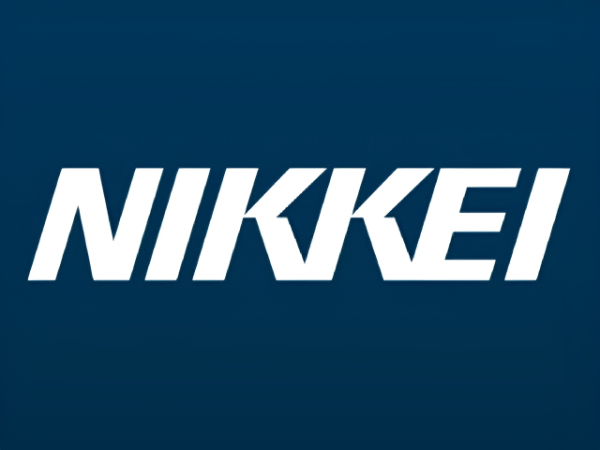January 26, 2024, Zurich, Switzerland
RepRisk endorses Code of Conduct for ESG Ratings and Data Products Providers provided by the International Capital Market Association
RepRisk is pleased to endorse the Code of Conduct for ESG Ratings and Data Products Providers (“Code”) which was created by the ESG Data and Ratings Working Group, an industry-led initiative initiated by the Financial Conduct Authority and convened by the International Capital Market Association and the International Regulatory Strategy Group. It aligns with the recommendations published by the International Organization of Securities Commission. The Code marks a monumental development in fostering transparency, reliability, and efficiency of ESG ratings and data products. RepRisk is proud to be one of the contributors to the creation of the Code and is proud to endorse Principles 1-4. Principles 5 and 6 do not apply to RepRisk’s ESG research approach (please see RepRisk’s response to the Code below for more details).
Transparency is the cornerstone of RepRisk’s business. RepRisk has always been transparent about its methodology with clients and partners. In November 2021, RepRisk became the first ESG data provider to publish its methodology on its website for everyone to see. In November 2022, RepRisk published a Transparency Commitment Charter to make the purpose of its dataset, its methodology, the underlying data points, as well as how its metrics are constructed, easily understandable for investors and decision-makers. RepRisk’s commitment to transparency empowers its users to apply the right data to their use case and to leverage what ESG means for their organization. It also helps drive accountability and responsible business practices for clients and partners.
RepRisk was among the first to endorse the Japan Financial Services Agency (JFSA, 金融庁) Code of Conduct for ESG Evaluation and Data Providers in early 2023. This endorsement is a testament to RepRisk’s dedication to operational excellence and echoes the call for more transparency in the ESG industry.
# RepRisk's response to the Code:
# I. Principle 1 (Good Governance): ESG ratings and data products providers should ensure appropriate governance arrangements are in place that enable them to promote and uphold the Principles and overall objectives of the Code of Conduct.
RepRisk has a clear organizational structure and is committed to upholding transparency, accountability, empowerment of employees, conflict of interest management, and aligning with ethical standards and other good governance practices.
- Operational excellence, innovation, and personal and professional growth are at the core of RepRisk’s values. RepRisk is committed to selecting the most qualified candidates, providing rigorous onboarding, training them in all relevant standards of RepRisk including ethical standards, and working on their professional development by creating a feedback and action loop.
- RepRisk has implemented clear oversight mechanisms in reviewing and validating its data and solutions and ensuring their accuracy and reliability. RepRisk also put in place an organizational structure with well-defined roles and responsibilities, including individuals involved in data collection, analysis, and publication. These mechanisms demonstrate RepRisk’s commitment to good governance practices by ensuring the integrity and transparency of its ESG data products and solutions.
- RepRisk’s analyst team operates within a proprietary evaluation system that was established to maintain the high quality of RepRisk’s data and ensure consistent application of RepRisk’s rules-based methodology. During recruitment, RepRisk evaluates candidates’ language and analytical capabilities through various written and verbal exercises. For each analyst, RepRisk tracks qualitative and quantitative performance indicators on a per datapoint item level and reviews performance indicators weekly.
- RepRisk’s top management recognizes that securing and developing qualified human resources is an essential element for continuously providing high-quality ESG data. RepRisk’s human resources approach focuses on hiring qualified staff, rigorous onboarding, continuous training, evaluation and feedback combined with empowerment. The company provides staff with regular trainings via the RepRisk Academy, a proprietary internal training tool, and invests in certified external education such as by the UN-supported PRI Academy.
# II. Principle 2 (Securing Quality): ESG ratings and data products providers should adopt and implement written policies and procedures designed to help ensure the issuance of high-quality ESG ratings and data products.
RepRisk is dedicated to operational excellence, and quality is of the utmost importance. There are systems and processes in place to ensure that RepRisk’s data and product solutions reach the highest standards of excellence and we continue to improve them continiously.
- The purpose of RepRisk’s dataset is to identify and assess ESG risks. With that, it enables companies, investors, and others to proactively mitigate these risks that can lead to reputational, compliance, and financial impacts for the company and its stakeholders, as well as impacts on people and the planet.
- RepRisk uses publicly available information in its research approach – hence, there is no risk of violating confidentiality or intellectual property of evaluated companies.
- RepRisk’s methodology is fully rules-based and transparent. RepRisk analysts are carefully trained; and the research process includes a quality assurance check.
- RepRisk's methodology has been consistent since day one – when it first started its dataset in 2007 – and the way it assesses the severity, reach, and novelty of ESG risks, as well as its core research scope has not changed. This allows its clients to access a consistent time series of 17+ years of daily data that can be used for rigorous backtesting, modelling, and quantitative analysis. RepRisk’s dataset is updated daily – it screens its sources every day for ESG risk.
- While the underlying methodology remains unchanged, parts of RepRisk’s research approach are dynamic and have developed to maintain quality and alignment with client feedback. Its machine learning models are also continuously refined to accurately identify ESG risk in source documents. More details can be found in the Transparency Commitment Charter under “Sources,” “Reliability,” and “Timeliness.”
#
III. Principle 3 (Conflicts of Interest):
3.1 ESG ratings and data products providers should adopt and implement written policies and procedures designed to help ensure their decisions are independent, free from political or economic interference, and appropriately address actual or potential conflicts of interest that may arise from, among other things, the ESG ratings and data products providers’ organizational structure, business or financial activities, or the financial interests of the ESG ratings and data products providers and their officers and employees.
3.2 ESG ratings and data products providers should identify, avoid or appropriately manage, mitigate, and disclose actual or potential conflicts of interest that may compromise the independence and integrity of the ESG ratings and data products providers’ operations.
- RepRisk exclusively focuses on ESG risk data and research and does not offer any other services or products such as indexes (based on ESG ratings that are informed by the needs of index clients) or credit ratings. Nor does RepRisk offer bespoke assessments, assurances, second-party opinions, proxy voting or engagement services, or advisory.
- RepRisk is fully financed by the data subscription fees from our clients and partners (“purchaser-pays model”). Lastly, as our research is exclusively based on information external to a company and does not take a company’s self-reported information into account, a company in our dataset cannot influence its score or risk profile.
- RepRisk is committed to remaining free of any conflicts of interest. More details can be found in the Transparency Commitment Charter under “Free of any conflicts of interest.”
# IV. Principle 4 (Transparency): ESG ratings and data products providers should make adequate levels of public disclosure and transparency a priority for their ESG ratings and data products, including their methodologies and processes to enable the users of the product to understand what the product is and how it is produced, including any potential conflicts of interest and while maintaining a balance with respect to proprietary or confidential information, data and methodologies.
Transparency is at the core of RepRisk’s business. RepRisk has always been transparent about its methodology with clients and partners. Building on its long-standing commitment to transparency about its methodology, in November 2021, it published the methodology on its website for everyone to see. Moreover, in November 2022, RepRisk launched a Transparency Commitment Charter which further outlines the purpose of RepRisk’s data, its research approach, methodology, underlying data, list of services provided, and level of independence.
# V. Principle 5 (Confidentiality): ESG ratings and data products providers should adopt and implement written policies and procedures designed to address and protect all non-public information received from or communicated to them by any entity, or its agents, related to their ESG ratings and data products, in a manner appropriate in the circumstances.
Principle 5 is not applicable to RepRisk, as RepRisk does not acquire any non-public information on companies for the purpose of generating ESG evaluations and data (RepRisk uses publicly available information only and company self-disclosures are excluded in its research approach).
#
VI. Principle 6 (Engagement):
6.1 ESG ratings and data products providers should regularly consider whether their information gathering processes with entities covered by their products leads to efficient information procurement for both the providers and these entities. Where potential improvements to information-gathering processes are identified, ESG ratings and data product providers should consider what measures can be taken to implement them.
6.2 Where feasible and appropriate, ESG ratings and data products providers should respond to, and address issues flagged by entities covered by their ESG ratings and data products and by users while maintaining the independence and integrity of these products.
Principle 6 is not applicable to RepRisk, as its research approach is based on analyzing information from public sources and stakeholders, and intentionally excludes company self-disclosures. RepRisk does not have an engagement or communication process in place with companies and therefore, companies have no means to exert influence over their own risk profile or score. However, anyone can contact RepRisk with any questions they have using the contact information publicly available on its website (including contact form, email address, phone number, and postal address). RepRisk clients are also able to contact RepRisk directly from within its web-based tool, the RepRisk ESG Risk Platform, via its Client Support Team, or via their Account Manager.
About RepRisk
RepRisk is the world’s most respected Data as a Service (DaaS) company for reputational risks and responsible business conduct. Since 2007, RepRisk’s data has been trusted by the world’s leading banks, investment managers, Fortune 500 companies, sovereign wealth funds, and organizations such as the OECD and UN. Combining advanced AI with deep human expertise, and a proven methodology at the core, RepRisk’s solutions bring peace of mind, enabling clients to ‘know more, be sure, and act faster’. Our pioneering solutions help to strengthen due diligence processes across ESG topics, such as biodiversity, deforestation, human rights, and corruption, empowering clients to identify, monitor, and mitigate reputational, compliance, and financial risks. Headquartered in Zurich, and with offices in Toronto, New York, London, Berlin, Manila, and Tokyo, we stay close to clients and bring an independent lens to the industry. United by our shared belief in the power of data, our 400 people are proud to be setting the global standard for business conduct data and driving positive change through transparency.
Visit us at reprisk.com and follow us on LinkedIn.



